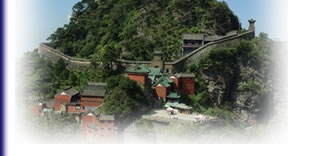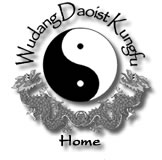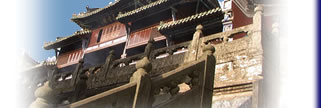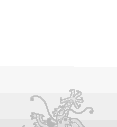 |
||||||||||||||||||||||
 |
 |
 |
||||||||||||||||||||
 |
||||||||||||||||||||||
 |
|||||||||
 |
|||||||||
Over-Simplified and Under-Practiced
In the West, there are many books about Daoist history, Daoist practice, and translations of various Daoist texts. However, there are few actual Daoist Masters in the West. Recently, more Western people have taken great interest in Daoism and Daoist practice and, as might be expected, they turn to books for information. However, one of the troubles with looking to books for information about practice and theory is that there is no one to whom questions can be directed. In order to become a student, one must first seek out a qualified teacher; in the case of Daoism this teacher is recognized as a Master with deep knowledge and experience in their teachings. The intent of this article is not to undermine the importance of books, but to implore those interested in learning to remember that books are recordings of others' experiences and opinions and can never take the place of a Master.
It is first important to point out that the translations of Daoist books often tend to oversimplify Daoist living and practice and as a result make these theories unattainable and unable to be grasped in our lives. Western study and philosophy tends to center around understanding through intellectual pursuit and research. Despite scholarly endorsement, Daoist theory and practice is not merely an intellectual pursuit, but an applied regimen for living and study. In order to truly understand Daoist practice, it is absolutely necessary to experience it.
The Daoist concept of 无为(wu wei), or “non-action,” is a theory that is difficult to grasp, let alone exemplify. Those high level Masters who have attained a state of wu wei in their practice have done so through many years of practice and self-refinement as taught and passed down to them by previous generations of Masters. However, many translations loosely allude to wu wei and as a result lead many readers to believe that wu wei is a philosophy of “doing what one wants to do,” a sort of “whatever” philosophy, a philosophy that one can simply decide to adopt. In considering this example, we can now assess how it is both over-simplified and unattainable. This style of translation of wu wei is over-simplified in that it inadvertently defines wu wei as a state that one chooses to be in. In truth, wu wei is a state where all action by a person is spontaneous and natural. However, in order to attain this state of wu wei, years of self-refinement through specific Daoist practices must be strictly adhered to.
What makes Daoist concepts such as wu wei seem far removed and unattainable is the use of intellectual and abstract understanding, as opposed to applied practice and the knowledge gained thereby. When one constantly tries to act natural and tries to live in this state of wu wei, they will find that it really is not as simple as they originally believed. Often times, people mistake Daoism as merely a philosophy, a set of beliefs that are chosen which then in turn make you a Daoist. This is far from the mark. Daoism is an all-encompassing way of life with its keystone being applied practice. The philosophy contained therein comes from thousands of years of proven practice and experience. The over-simplified, but elusively elucidated wu wei that is translated makes it easy to misunderstand how one would be able to ascend to such a high level of being. It makes it entirely outside of our realms of understanding and comprehension. This is why having an experienced and accomplished Master capable of guiding you through your practice and experience is so important. It is only by understanding the first levels of practice that we can understand and ascend to higher levels. We can use the poignant analogy that practice is much like building a staircase: in order to ascend to the higher levels and build the next floor, we must first start by building foundation and the first steps. Simply understanding the theory of building the stairs does not mean that one can ascend without building them.
We can now address the problem of the over-theorized and under-practiced result of modern-Daoist translation. As stated before, there are two major keys necessary in studying Daoism: a Master for guidance and teaching, and repeated practice. Many modern books that purport to teach Daoist practice, mistakenly allow readers to believe that Daoist practice is simple and often offer theoretical teachings in high level training such as the Micro and Macrocosmic orbit. These books often inform readers of the “quick, easy, and immediate” results of following their regimen. Many of these books state that certain high level Daoist practices that take years to cultivate can be accomplished in as short as three months. In essence what these translations and instructional books tend to lead readers to believe is that by simply understanding the theory of the practice, one can then be able to execute the processes. This is quite far from truth. In order to excel in neidan (internal alchemy), one's body must be prepared for the necessary training. In order to properly prepare one's body for this, repeated practice over time is absolutely necessary. If these high level practices were as quick, easy, and immediate as some books assert, everyone would already be immortal.
Books are important in helping us to gather information, to learn about things we might not otherwise know about, and to learn from the experiences of others. However, books can never replace masters and teachers. Masters are masters because of their practice, experience, and knowledge. Their knowledge comes from constant practice of the teachings that were passed onto them by previous generations of Masters. In order to truly learn the wonderful treasures that the practices of Daoism have to offer, we have but one thing to do: practice and learn from our hands-on experience as guided by our Masters and teachers. For more information on this subject, feel free to reference the article on the Yu Huang Xin Yin Miao Jing, which is also located in the Articles section of the website.
Wudang Taoist Traditional Kung Fu Academy |
|
| Website: http://www.wudanggongfu.com | E-Mail: wudang.wushu.info@gmail.com |
| Mobile: (0086)135-978-86695 | Address: Wudangshan, Shiyan City, Hubei Province, China 442714 |